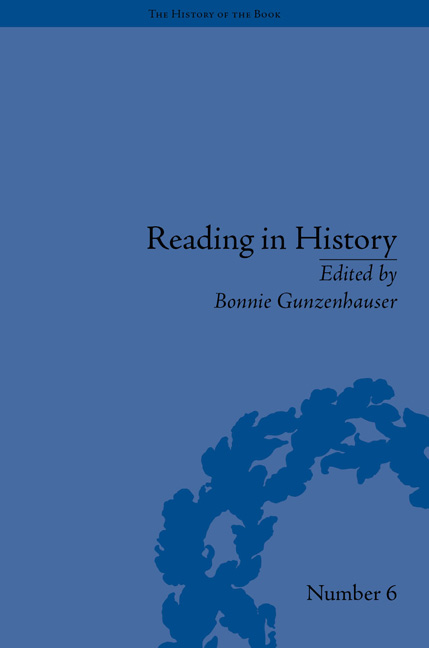Book contents
- Frontmatter
- CONTENTS
- Acknowledgements
- List of Contributors
- Introduction
- Section I Artefactual Methodologies
- Section II Paratextual Methodologies
- Section III Institutional Methodologies
- 6 Women Reading Shakespeare in the Outpost: Rural Reading Groups, Literary Culture and Civic Life in America
- 7 Turning Libraries into Public Works: Funding Arguments on the Local Level in Wilkes-Barre and Scranton, Pennsylvania
- 8 Explicating Explications: Researching Contemporary Reading
- Notes
- Works Cited
- Index
8 - Explicating Explications: Researching Contemporary Reading
from Section III - Institutional Methodologies
- Frontmatter
- CONTENTS
- Acknowledgements
- List of Contributors
- Introduction
- Section I Artefactual Methodologies
- Section II Paratextual Methodologies
- Section III Institutional Methodologies
- 6 Women Reading Shakespeare in the Outpost: Rural Reading Groups, Literary Culture and Civic Life in America
- 7 Turning Libraries into Public Works: Funding Arguments on the Local Level in Wilkes-Barre and Scranton, Pennsylvania
- 8 Explicating Explications: Researching Contemporary Reading
- Notes
- Works Cited
- Index
Summary
One of the central difficulties confronting the reading researcher is that analysing individuals' articulations of their reading necessarily requires that the researcher reads the reception context as well. As John Frow observes, the reading of a text is not itself available for scrutiny: all that can be accessed is a secondary manifestation which must be put into language that does not faithfully reproduce psychological processes but instead remediates them through historically bound categories and discourses. Rather than the idiosyncrasies of a personal encounter with the text, what emerges are ‘the conventions of a historically and culturally specific regime’. Anthropologists confront a similar lack of transparency, when what are presented simply as accounts of behaviour are ‘really our own constructions of other people's constructions of what they and their compatriots are up to … Right down at the factual base … of the whole enterprise, we are already explicating: and worse, explicating explications’. The inevitability of interpretation is thus not limited to reception study, but reception study foregrounds the issue, focusing as it does not only on the interpretation of literary texts, but on the decoding of the many texts that the process of reading generates: oral articulations, marginalia, transcripts, diary entries, letters, essays and more. Projects such as the Reading Experience Database demonstrate how the proliferation of these different types of texts call forth another set of interpretive competencies in the reception researcher, for example the ability to analyse such varying genres.
In this chapter, I consider these and other challenges facing reading researchers, focusing particularly on those which arise when investigating contemporary reading. Access to living subjects would seem to offer significant advantages not ordinarily available when studying historical readers. However, a fresh set of questions arises when addressing contemporary subjects and the regimes of reading within which they are embedded, many of which have been debated by scholars in the fields of cultural studies and communications.
- Type
- Chapter
- Information
- Reading in HistoryNew Methodologies from the Anglo-American Tradition, pp. 119 - 134Publisher: Pickering & ChattoFirst published in: 2014



